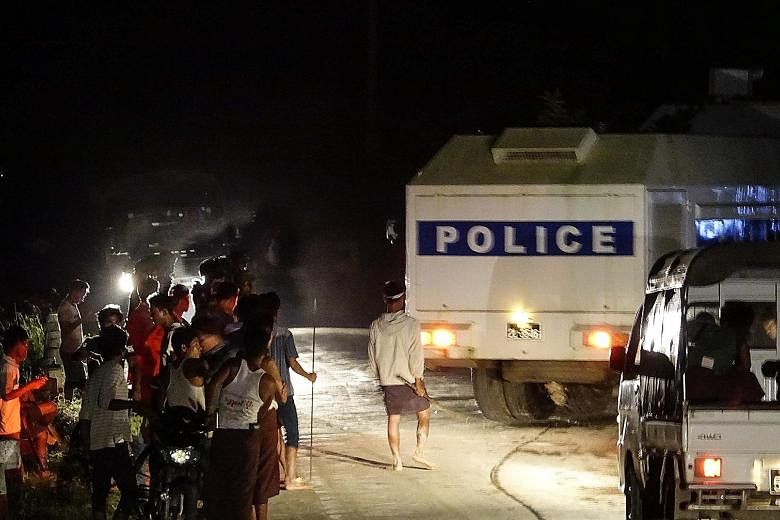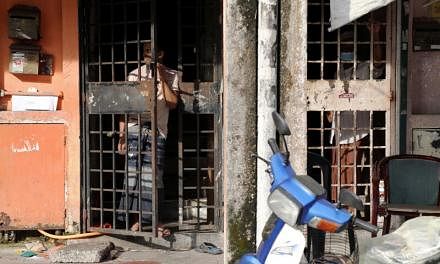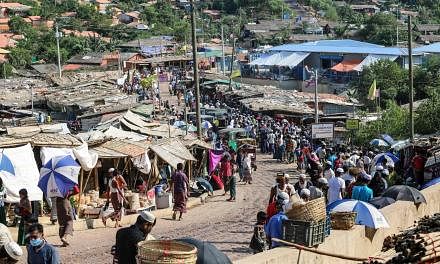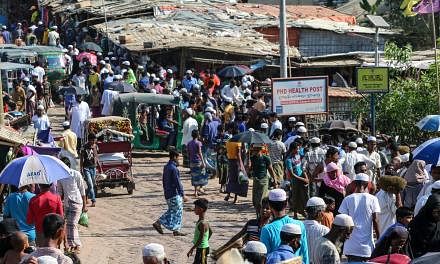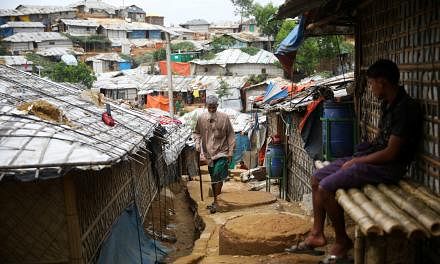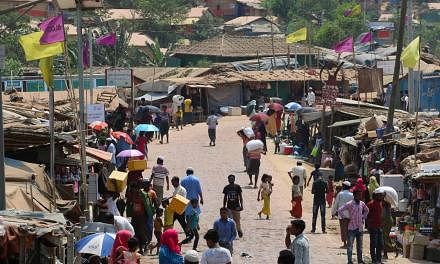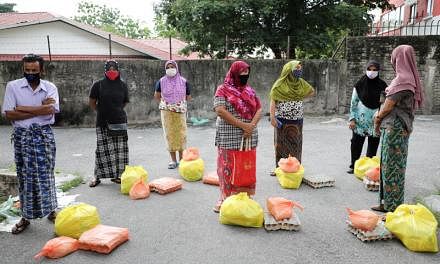COX'S BAZAR (Bangladesh)• • Bangladesh said yesterday that it had treated more than 2,350 Rohingya refugees for serious injuries suffered during ethnic violence in Myanmar, including bullet and machete wounds and trauma suffered from landmines.
More than 420,000 refugees from the stateless Muslim minority have fled Myanmar's western-most state of Rakhine since Aug 25, overwhelming camps situated along the border with Bangladesh that are ill-prepared for this influx of desperate civilians.
Aid efforts are being stepped up, with a Boeing jumbo jet laden with 100 tonnes of supplies leaving Saudi Arabia for Bangladesh, and the United States announcing another US$32 million (S$43.3 million) in assistance.
"The UNHCR refugee agency has assured food, healthcare services and shelter facilities for the Rohingya refugees, and the World Food Programme has assured food for 400,000 Rohingya over the next four months," Bangladesh's Relief and Disaster Management Minister, Mr Mofazzal Hossain Chowdhury Maya, said yesterday.
The Bangladesh authorities said nearly 14,000 refugees had been treated in hospital and mobile medical clinics for illness and injuries, including 2,364 people for wounds consistent with violence.
"These include injuries from bullets, mines or sharp weapons such as knives," Mr Enayet Hussain, a senior health department official, told Agence France-Presse.
Bangladeshi officials believe anti-personnel mines have been planted by Myanmar security forces to prevent Rohingya from trying to return to their villages.
Meanwhile, back in Myanmar, Buddhist protesters threw petrol bombs to block a shipment of aid to Muslims in Rakhine, where the United Nations has accused the military of ethnic cleansing.
Hundreds of protesters took part in the attempt to stop Red Cross workers from loading relief supplies.
Police fired into the air to disperse them.
The incident on Wednesday reflected rising communal animosity. The supplies were bound for Rakhine's north, where insurgent attacks on Aug 25 sparked a military backlash.
Many Rohingya remain in Myanmar, hiding in fear without food or other supplies, say aid workers.
Several hundred people tried to stop a boat being loaded with about 50 tonnes of aid at a dock in the state capital of Sittwe, said a government information office.
"People thought that the aid was only for the Bengalis," state government secretary Tin Maung Swe told Reuters, using a term that the Rohingya find offensive.
No aid workers were hurt, said a spokesman for the International Committee of the Red Cross.
Spokesman Maria Cecilia Goin said the crowd approached the boat to ask Red Cross workers what they were doing.
"All emergency support done by the organisation and in the movement is done in a neutral and impartial manner," she said, citing what the aid workers at the dock had told the crowd before the authorities intervened.
Myanmar's army chief yesterday called on people who had been internally displaced by violence in Rakhine to go home and rebuild their communities.
However, Senior General Min Aung Hlaing made no mention of Muslim Rohingya who had fled to Bangladesh to escape the violence in Myanmar.
AGENCE FRANCE-PRESSE, REUTERS
